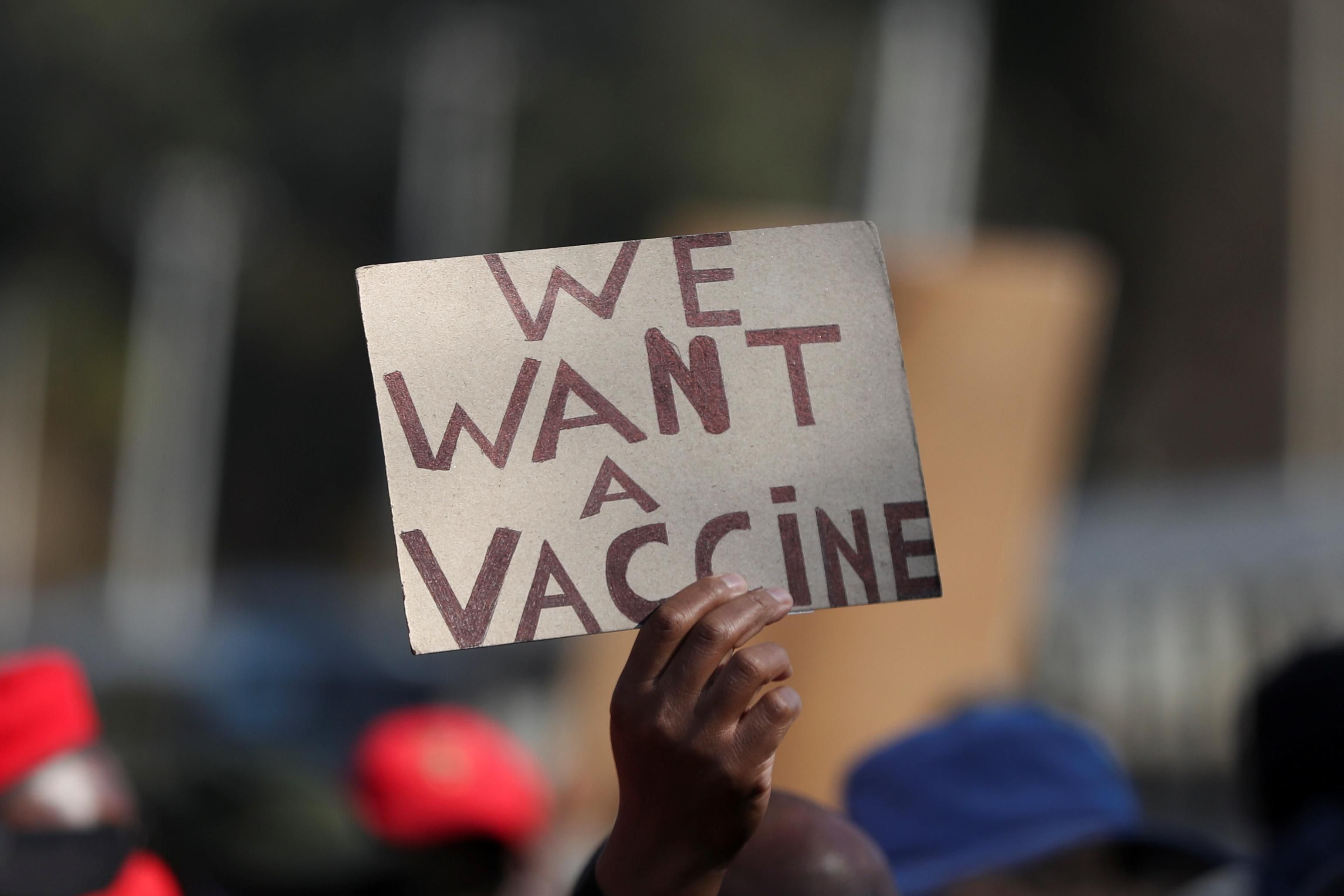This time last year, world health experts were speculating about why Africa appeared to have escaped the worst of the global pandemic. Younger populations? Natural immunity created by exposure to past viruses? Something else?
They can stop wondering. Africa is now in the grip of a COVID emergency.
A few bleak facts:
- Of the 10 countries with the highest number of current COVID deaths per capita in the week before July 18, three of the top six are in Africa. That includes Namibia at #1, Tunisia at #2, and South Africa at #6.
- Last week, recorded COVID deaths in Africa jumped 40 percent from the previous week.
- Just 1 percent of Africa's 1.3 billion people are fully vaccinated. African governments will be very lucky if that number reaches 10 percent by the end of 2021.
- African countries were slated to receive many more AstraZeneca vaccine doses from India. That was before India became a global COVID hotspot.
- Of 77.6 million doses that the COVAX facility, a vaccine-sharing initiative, has allocated to African countries, fewer than 16 million had arrived in Africa by July 7.
There are many explanations for Africa's new COVID troubles. Healthcare facilities are below international standards in many of Africa's 54 countries. Governments don't have the bureaucracies to roll out treatments and vaccine doses as efficiently as in wealthier parts of the world. Poor infrastructure in some countries compounds that problem.
But the G-Zero world disorder plays a role here too. G-Zero is a term coined by our boss, Ian Bremmer, to describe an "every nation for itself" approach to global politics that has become the dominant trend in today's world.
It's not that wealthy countries have done nothing to help Africa. Without support from the US, EU, and other rich countries, COVAX wouldn't exist to provide vaccines to anyone. But while it's completely understandable that American and European leaders want to vaccinate Americans and Europeans first, the scale of vaccine selfishness has become a topic of hot debate.
Here's your key data point: According to One.org, an activist organization, "The world's richest countries could vaccinate their entire populations and still have over 1.9 billion doses to share — enough to vaccinate the entire adult population of Africa."
As it is, healthy young people in the US and Europe will be vaccinated months before many frontline healthcare workers, elderly people, and people with serious underlying medical conditions in Africa.
Some may see this as a sad but understandable reality. Wealthier nations and people have always enjoyed advantages while the poor suffer what they must. But there are two obvious responses to that.
First, selfishness can be a matter of degree. It's one thing to argue that "my people must be vaccinated first." It's quite another to horde excess supplies that might never be used and to consider booster shots for young healthy people in one country while frontline health workers in other countries can't even get their very first vaccine dose.
Second, every time COVID is transmitted from one person to another, it mutates. Enough mutations create variants — like the delta variant that has caused COVID to rise not only in Africa, but also in the United States and Europe. Leave enough people unvaccinated and we sharply increase the risk that future variants — maybe more transmissible and more lethal than the now prevalent delta variant — will be infecting vaccinated people everywhere.
